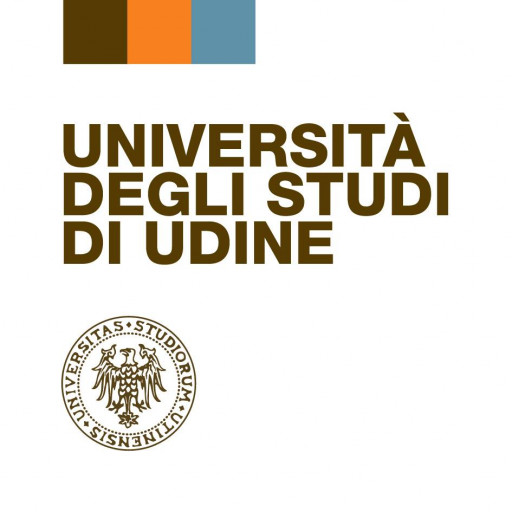Photos of university / #officialuom
The MSc in Advanced Audiology at The University of Manchester is a comprehensive and innovative program designed for audiologists and healthcare professionals seeking to deepen their expertise in the field of audiology. This postgraduate degree offers an in-depth exploration of advanced diagnostic and rehabilitative techniques, evidence-based practice, and cutting-edge research in audiological sciences. Throughout the course, students will develop critical skills in assessing and managing a wide range of hearing and balance disorders, including age-related hearing loss, cochlear implants, tinnitus management, and auditory processing disorders. The program combines theoretical coursework with practical training, allowing students to apply their knowledge in clinical settings and develop proficiency with modern audiological equipment and technologies.
The curriculum is structured around core modules such as Audiological Assessment and Rehabilitation, Advanced Instrumentation, and Research Methods, ensuring a balanced focus on clinical skills, scientific understanding, and research competencies. Students also have opportunities to specialize in areas such as paediatric audiology, vestibular assessment, or cochlear implantation, tailoring their learning to their professional interests and career aspirations. The program emphasizes evidence-based practice, encouraging students to critically evaluate research literature and incorporate the latest findings into their clinical decision-making.
Taught by experienced clinicians and researchers at one of the leading universities in healthcare education, the course offers a dynamic learning environment that fosters innovation and professional growth. Placement opportunities are integrated into the program, providing valuable real-world experience and networking prospects within the NHS and private healthcare sectors. Graduates of the MSc in Advanced Audiology will be well-equipped to take on specialized roles within audiology clinics, hospitals, research institutions, and industry, contributing to improved patient care and advancing the field of audiological sciences. This program is ideal for those seeking to expand their clinical capabilities, engage in research, or pursue further academic qualifications such as a PhD, making it a pivotal step in their professional development in audiology.
Advanced Audiology at The University of Manchester offers a comprehensive and in-depth exploration of audiological science, equipping students with the advanced knowledge and practical skills necessary for effective clinical practice and research in audiology. The programme is designed for qualified audiologists seeking to enhance their expertise and stay at the forefront of developments in hearing science, assessment techniques, rehabilitation strategies, and technological innovations. Throughout the course, students engage with a diverse range of topics including auditory physiology, psychoacoustics, advanced diagnostic methods, hearing aid fitting and management, cochlear implants, and tinnitus management. The curriculum combines theoretical learning with practical training in state-of-the-art clinics, enabling students to develop diagnostic competencies and evidence-based intervention skills. Emphasising interdisciplinary collaboration, the programme encourages engagement with disciplines such as neuroscience, psychology, and engineering to foster innovative approaches to hearing health. Students benefit from expert-led lectures, seminars, and workshops, as well as research projects that enhance critical thinking and scientific skills. The course is suitable for practicing audiologists, healthcare professionals, and scientists seeking to specialise further in audiological sciences or to pursue careers in academia and industry. The programme structure includes taught modules, research training, and a substantial research dissertation, providing students with opportunities to contribute to advancements in hearing science. Graduates of the Advanced Audiology programme are well-prepared to undertake senior clinical roles, contribute to policy development, or continue with doctoral research. The University’s strong links with clinical partners and industry leaders ensure that students benefit from real-world insights and networking opportunities, supporting their professional development and career progression in the dynamic field of audiology.
Admission to the MSc Advanced Audiology program at The University of Manchester typically requires applicants to hold a good undergraduate degree, usually a first or second-class honours degree in a relevant discipline such as audiology, speech and language therapy, psychology, or a related health sciences field. Applicants may also be required to demonstrate relevant clinical or professional experience in audiology or a related area, which can include practical placements or employment in audiology settings to ensure they have the necessary foundational knowledge and skills.
Applicants whose first language is not English must provide evidence of English language proficiency, usually through standardized tests such as IELTS, with a minimum overall score of 7.0, and specific scores in individual components (e.g., reading, writing, listening, speaking). The program emphasizes a strong academic background along with practical clinical competence, therefore, prior experience in audiological assessments, rehabilitation, or related clinical practices can strengthen an application.
The selection process may include an interview, either in person or via video conferencing, to evaluate candidates’ motivation, communication skills, and understanding of the field of audiology. Additionally, references from academic or professional sources are typically required to assess the applicant’s potential for success in a rigorous postgraduate program.
Applicants are encouraged to submit a compelling personal statement outlining their interest in advanced audiology, relevant experience, career goals, and reasons for choosing The University of Manchester. The program may also consider applicant diversity and commitment to the field, fostering a multidisciplinary learning environment.
The university may also prioritize applicants who demonstrate a motivation to work within audiology in a variety of clinical settings, as the program aims to prepare students for professional roles in healthcare, research, or academia. Evidence of continuous professional development or involvement in relevant professional organizations can also be advantageous.
Overall, the program seeks candidates who possess a combination of academic excellence, relevant clinical or practical experience, and clear career objectives in the field of audiology. Given the competitive nature of the program, meeting or exceeding the minimum requirements does not guarantee admission, but demonstrates suitability for this advanced level of study.
Financing studies for the Advanced Audiology MSc program at The University of Manchester typically involve a combination of tuition fees, potential scholarships, government funding, student loans, and personal savings. The tuition fees for international and home students are set annually and can vary depending on the student's residency status. International students generally pay higher tuition fees compared to UK residents. To support students financially, the university offers a range of scholarships and bursaries based on academic merit, financial need, or specific criteria such as country of origin. Applicants are encouraged to check the university’s dedicated scholarships webpage for the most current information on available funding opportunities. Additionally, government-funded student loan schemes, such as the Student Loans Company (SLC) in the UK, may provide financial support to eligible students, enabling them to spread the cost of tuition and living expenses over time. For international students, loans and financial aid options are more limited but may include private loans or sponsorships from home country governments or organizations. Students are advised to explore external funding sources, including charitable foundations and healthcare organizations, which sometimes offer scholarships or event sponsorships for postgraduate health-related studies. The university also offers guidance and support through its Financial Support Office, helping students to understand their options and apply for financial aid. It is recommended that students budget for additional expenses, such as accommodation, textbooks, insurance, and everyday living costs. The university’s placement and work opportunities during the course may also assist students in gaining practical experience and partially offsetting costs. Overall, financing advanced studies in audiology at The University of Manchester requires careful planning and exploration of available funding sources, with a focus on timely application for scholarships and financial assistance to minimize financial burdens during the course of study.
The Advanced Audiology program at the University of Manchester is a comprehensive postgraduate course designed for individuals seeking to deepen their understanding of audiological sciences and hearing healthcare. This program offers a robust curriculum that integrates theoretical knowledge with practical application, preparing students for advanced roles within audiology practice. Students engage with a wide range of topics, including advanced assessment techniques, hearing aid technologies, vestibular assessment, paediatric audiology, tinnitus management, and cochlear implants. The program emphasizes evidence-based practice and encourages critical thinking to adapt to the evolving landscape of audiology. Scholarships and research opportunities are available for students wishing to contribute to cutting-edge developments in hearing science. The faculty comprises experienced clinicians and researchers who guide students through complex clinical scenarios and foster an innovative learning environment. Graduates of the program are well-equipped to undertake specialist clinical roles, contribute to research, and influence policy in audiological health services. The program typically combines taught modules, practical placements, and research components, allowing for a well-rounded educational experience. It also prepares students for potential professional certifications and registration with health authorities. Located within the University of Manchester, a leading research university, the program benefits from state-of-the-art facilities and collaborative opportunities with hospitals and industry partners. Overall, the Advanced Audiology course aims to produce highly skilled, academically rigorous professionals capable of improving audiological care and advancing hearing science.







